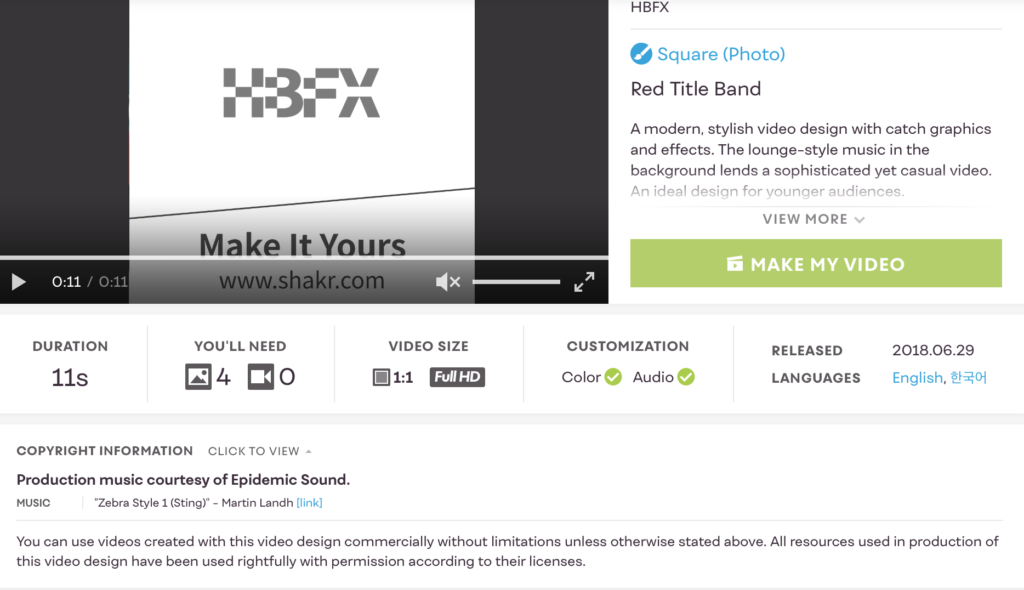Copyright law is something that people associate with movies and that warning that comes on that warns people that those deviants engaging in video pirating will be found and prosecuted to the full extent of the law.
That’s not the type of copyright that is actually most likely to affect businesses who want to create marketing videos, however, and unlike those who make a hobby out of pirating movies, businesses who violate copyright laws are likely to be found and held financially responsible.
Most businesses, especially when they first get started, are actually completely obvious to this. Others don’t care, thinking they won’t get caught or that it won’t matter. Both situations can land the business in a world of hurt, so it’s important to stay on the right side of copyright law.
In this post, we’re going to take a look at the most common violations of copyright in marketing videos, and how you can safely create content without breaking any of the rules and landing yourself in hot water.
What Happens if I Break a Copyright Law?
While it’s easy to think “what are the odds of someone actually finding out,” think again. There is software out there to automatically search for copyright violations.
I’ve also manually found content that’s been ripped off of me, including screenshots of social media I’d taken for blog posts, or entire blog posts all together. One of my client’s assistants was even stealing the custom-made graphic featured images from another one of my clients until I recognized it and shut it down (and left said first client). The internet is so big, but the niches we belong to are a lot smaller than you’d think.
It’s also important to note that people are a lot more likely to come over businesses than individuals because it’s easier to prove that the businesses are getting value out of the content, and it’s assumed there is more money there, too.
So long story short: you’ll get a cease and desist, but by then, they may also want compensation for the content you’ve already been using. If Facebook, YouTube, or another social site catches it (especially in ads), they might suspend your accounts altogether.
The Most Common Violations in Copyright in Marketing Videos
If there’s a copyright law out there, you can almost guarantee that someone has broken it, but there are some that are easily violated more often than others in the marketing world.
These are the 4 most common violations that happen in terms of copyright in marketing videos.
1. Using Music You Don’t Have a Right To
A lot of businesses don’t realize that you need to have rights to a song before you use it in your marketing content– you can’t just upload the latest T-swift tune to your video and hope it flies.
Want to use music in your videos? You can either:
- Create your own or hire someone to create it for you
- Purchase the rights to use a song in your content
- Find copyright-free music
2. Using Pictures You Don’t Have a Right To
This one might get even more people; they’ll use a stock photo as their video thumbnail, or as part of the video itself, but they never obtained rights to actually use that image.
There are sites that have “free-for-any-type-of-use” pictures available, including Pixabay and Unsplash. Just play it safe, though, and run the images through a reverse Google search to make sure that these images haven’t been stolen from somewhere else– I actually had it happen once because I didn’t know that could happen, and ended up eating a $250 fee.
3. Using Pop Culture Clips You Don’t Have a Right To
It’s easy to think that short snippets of clips from Game of Thrones or even American Idol are ok to use, but those big name companies own the rights to all video content from them.
Instead, it’s better to allude to the clips instead of using them outright.
4. Not Understanding Commercial Licenses
This is a big one. If you look at sites like Shutterstock, you’ll see that there are different plans and different types of licenses. These licenses vary in cost, but don’t just cheap out and hope you’re good; these licenses change in costs aren’t superficial, and they actually dictate how you can use the images.
Certain licenses will allow you to use the images or music or whatever it is you’re purchasing in marketing videos, including ad campaigns; others won’t. You need to look specifically for commercial licenses, and read them to make sure that your intended use of the content is covered.
I Need Marketing Videos, I’m On a Budget & Don’t Want To Worry About Copyright: What Do I Do?
Most small businesses and brands don’t have the kind of money needed to hire agencies to create individualized video content for them, especially at scale. This is how they’ll sometimes end up violating copyright laws in the first place.
Instead of shelling out thousands for just one single video, it’s best for small and medium businesses to use a tool that allows them to create their own personalized videos at scale.
Shakr was created to fill this need. All of our stock photos and the music in our library are free for businesses to use for commercial and advertising purposes unless otherwise noted, so you don’t have to understand complicated licenses or terms of service. You can use both in addition to adding your own custom images and video clips to our templates.

Want to learn more? You can browse our templates here.
Final Thoughts
Copyright law is serious business, and it’s not something that you want to mess around with. Always err on the side of caution, and never use anything that you don’t know you have the rights to. This typically means using only content that you’ve created, and/or relying on tools like Shakr, which have truly-free-for-commercial-use stock photos and music libraries available for users.
Want to create marketing videos quickly without having to worry about copyright law for a single second? Start your free trial with Shakr here.


